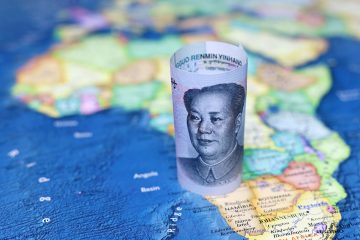
China’s Role in Restructuring Debt in Africa
Africa’s public debt burden has doubled from 2010 to date. Data from the International Debt Statistics Data as of December 2022 shows that African countries owe $ 644855.2 billion (USD). The International Monetary Fund (IMF) and the World Bank consider 22 low-income African countries to be either in debt distress or at high risk of debt distress as of November 2022. Debt distress in this context means a country is experiencing difficulties in servicing its debt. A high debt burden could risk the continent’s economic growth, development, and climate investments. The additional global economic downturn and falling commodity process could compound the issue for countries on the continent. While there is no immediate threat of systemic and financial collapse due …
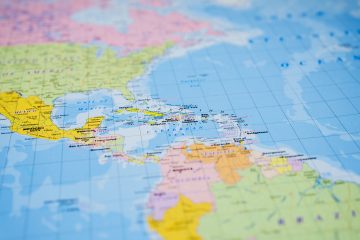
The Biden Administration Must Improve its Foreign Policy Toward Latin America
Historian Joseph S. Tulchin once described U.S.-Latin American relations as a “historical legacy of conflict.” Over the last two years, the Biden administration has neglected regional concerns in Latin America. With a new year ahead, the Biden administration must revaluate its relationship with the region with ample considerations of social geopolitical elements tinted with historic predispositions. Regional concerns cannot continue to be addressed from a preoccupied hardline position. As other nations outside the Western hemisphere strengthen their influence in Latin America, the time to disregard human dignity as imperative to current affairs must end. A U.S. Progressive Foreign Policy While the Biden administration has advocated for a foreign policy stipulated to adhere to international human rights norms, it has failed …

From periphery to core: COP27 and the era of loss and damage
“Already at 1.1-degrees of warming, we are living in an era of unmanageable loss and damage. We on the frontlines are paying the price for decades of wholly insufficient action by those most responsible for the dangerous state of our climate.” (AOSIS’ opening statement at COP27) At the outset of the 27th Conference of the Parties (COP) to the United Nations Framework Convention on Climate Change (UNFCCC), the Alliance of Small Island States (AOSIS) made clear what they wanted to get out of this gathering under the hot November sun of Sharm el-Sheikh. They would not leave Egypt without an acceptable agreement that would reflect their decades long struggle for financial support on loss and damage. And, against all odds, …
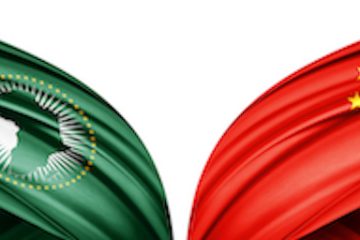
Bridging State Responsibility and Opportunities as African Countries Join in the Digital Silk Road
In 2015 China launched the Digital Silk Road (DSR hereafter). The DSR is an essential part of the One Belt, One Road (BRI) strategy with significant domestic and foreign policy objectives. China has made enormous investments that have allowed it to achieve rapid technological advancement and economic growth. As of 2021, Chinese firms were three of the world’s largest technology companies by revenue. According to the World Intellectual Property Organisation (WIPO), in 2020 China reported 1.5 million patent applications, 2.5 times more than the second leading country, the United States. The DSR is part of China’s plan to spread its technical and proprietary knowledge by building telecommunications, data, and financial infrastructure in countries participating in the BRI. The Nigerian digital …
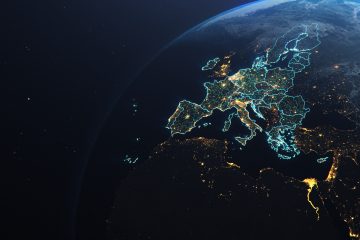
Who governs? When and why governments appoint technocrats?
One of the most critical questions of modern comparative politics is: who governs? The first thing that would come to mind would be party politicians. However, transformations in several European countries’ governmental arena indicate that partisan presence in office, and, more broadly, the general model of party government, characterised by parties’ centrality in representing the needs and demands of citizens, is in decay. Such a decline owes much to the increased government involvement of technocratic personnel – i.e., ministers with no political affiliation. Indeed, while Italy established itself as the promised land of technocracy, currently led by Mario Draghi and by four technocratic prime ministers in the last two decades, technocratic ministers have also entered the last three partisan governments …
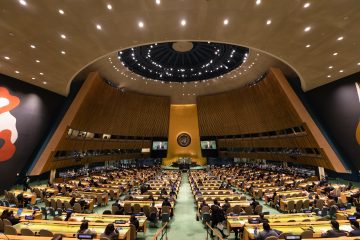
Citizens worldwide want a stronger and more democratic UN: Findings from an international survey by Oxford, LSE, and Griffith researchers
This week, political leaders from countries all over the world are gathering for their annual meeting at the United Nations (UN) in New York. Since its creation and to this day, there have been discussions about reforming the UN. Soon after the UN was founded in 1945, public figures like Albert Einstein called for a much more powerful and democratic UN. Today, leaders such as Ukrainian President Zelensky urge fundamental reforms to strengthen the UN, while NGOs like Democracy Without Borders campaign for making the UN more democratic and representative of citizens. In an international survey in six countries worldwide (Argentina, China, India, Russia, Spain, and the United States), Mathias Koenig-Archibugi (London School of Economics and Political Science), Luis Cabrera …
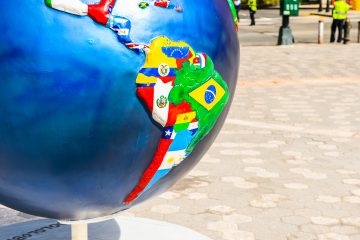
The Judicialization of Politics in Latin America, Anti-corruption Crusades and Their Impact on Democratic Processes: Q&A with Professor Ezequiel González-Ocantos
In the upcoming months, the OxPol Blog will be featuring Q&A sessions with faculty from the Department of Politics and International Relations to highlight their ongoing research. Over the last few weeks, the OxPol editorial team spoke with Professor Ezequiel González-Ocantos about his ongoing projects since winning the Philip Leverhulme Prize in 2018. OxPol (OP): In 2018 you were awarded the Philip Leverhulme Prize. Could you share what projects you have been working on over the last few years since winning the prize? Ezequiel González-Ocantos (EGO): Since 2018 I’ve been working on three different projects. First, together with my colleagues Sandra Botero and Daniel Brinks we curated a collection of essays that looks at new trends in the judicialization of politics in …

A Marshall Plan for Ukraine?
As policymakers and commentators grapple with understanding the direction of Russia’s invasion of Ukraine, they turn to the past for guidance. Are we at the beginning of a more general war –1914 or 1939? Or is the experience of how major wars end a guide? The Marshall Plan of 1948-1951 is all over the news as discussions get under way about the hoped-for recovery of Ukraine. “The war in Ukraine has caused the world, particularly the west, to look to the past for answers…. Marshall Plan history is no longer a niche,” says the Financial Times’s Gillian Tett. EU Commissioner Johannes Hahn, Prime Minister Boris Johnson, magazines like New Statesman, and think tanks like the Center for Economic and Policy …









